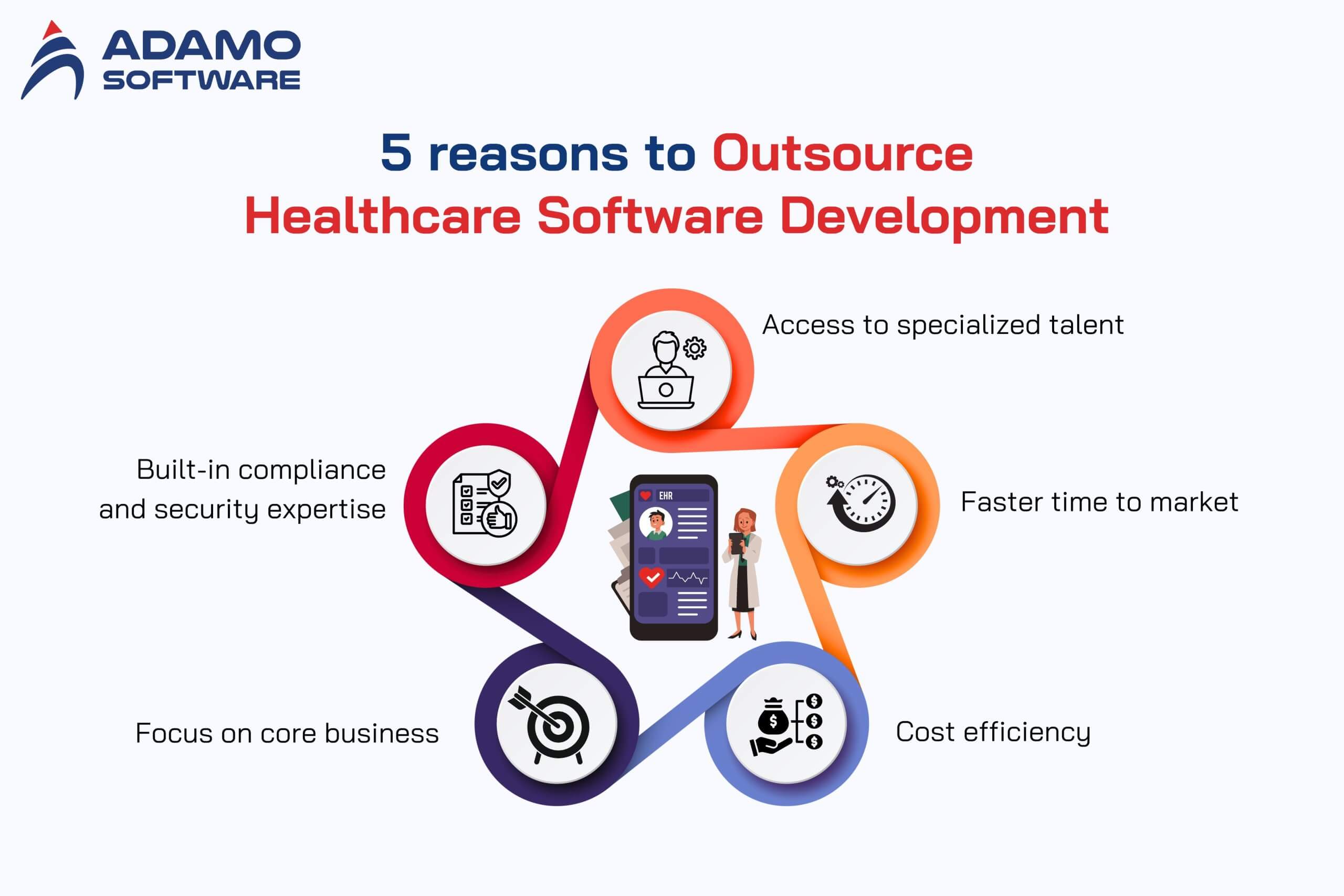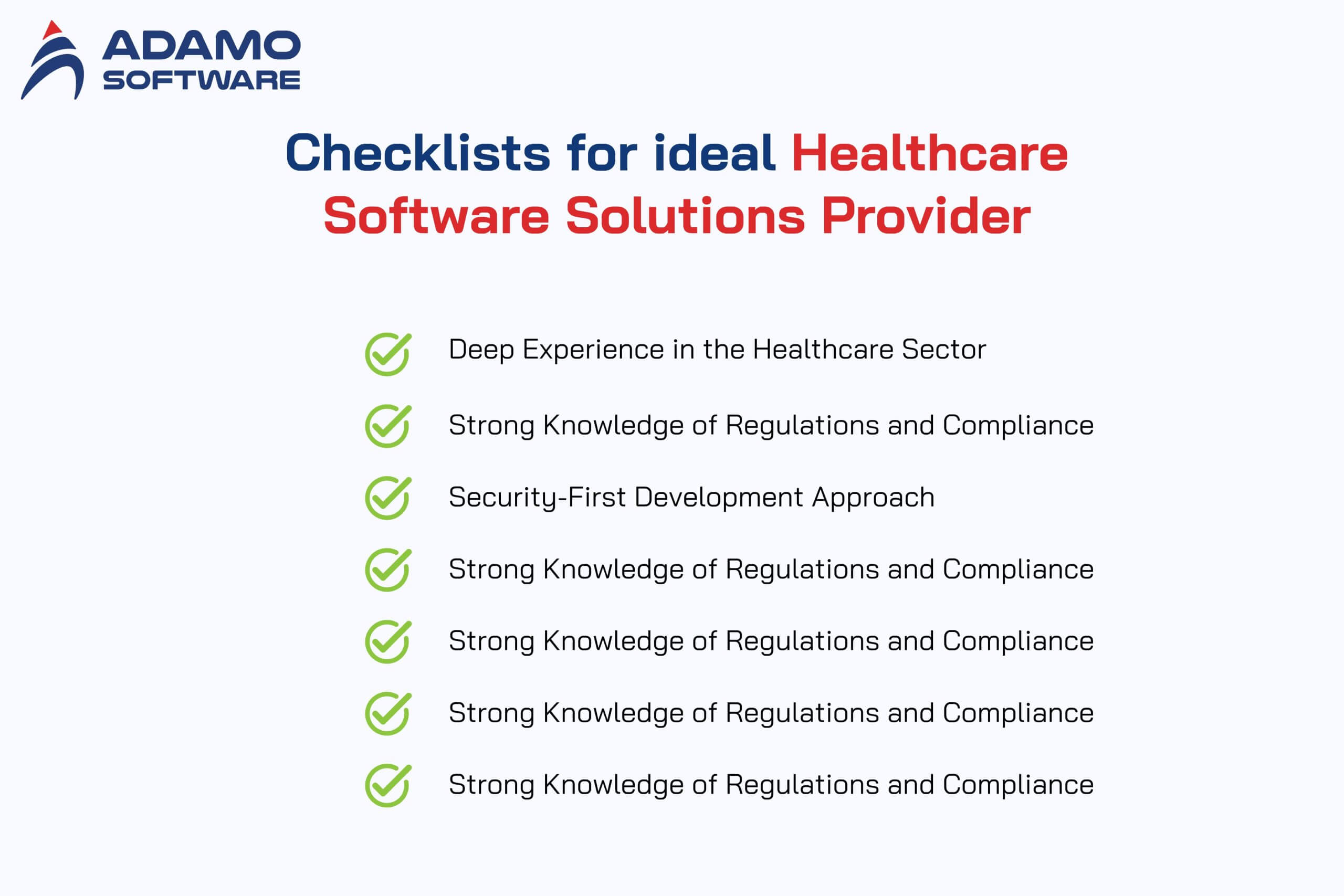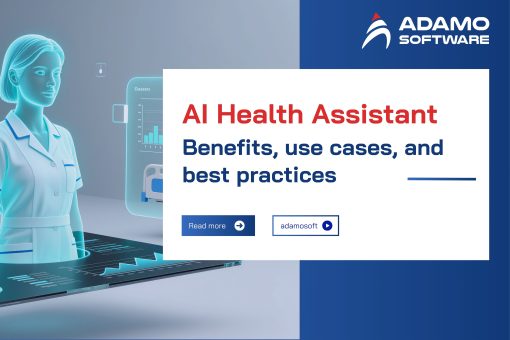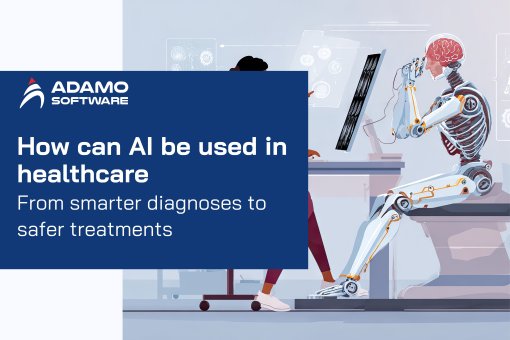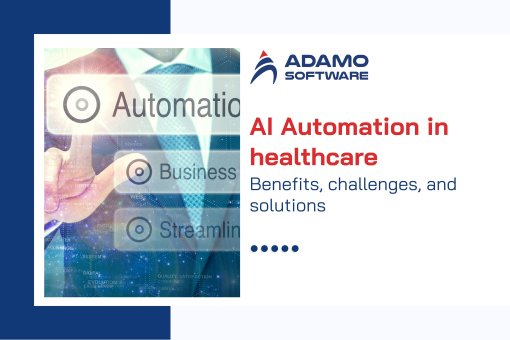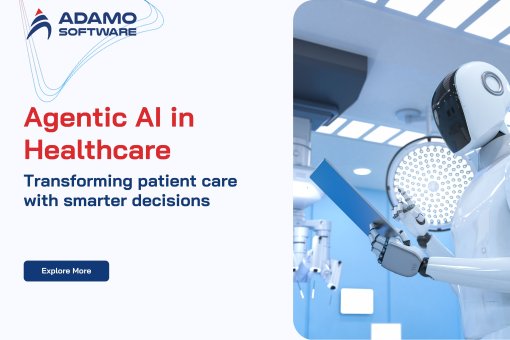Why should businesses invest in Healthcare Software Development Services?
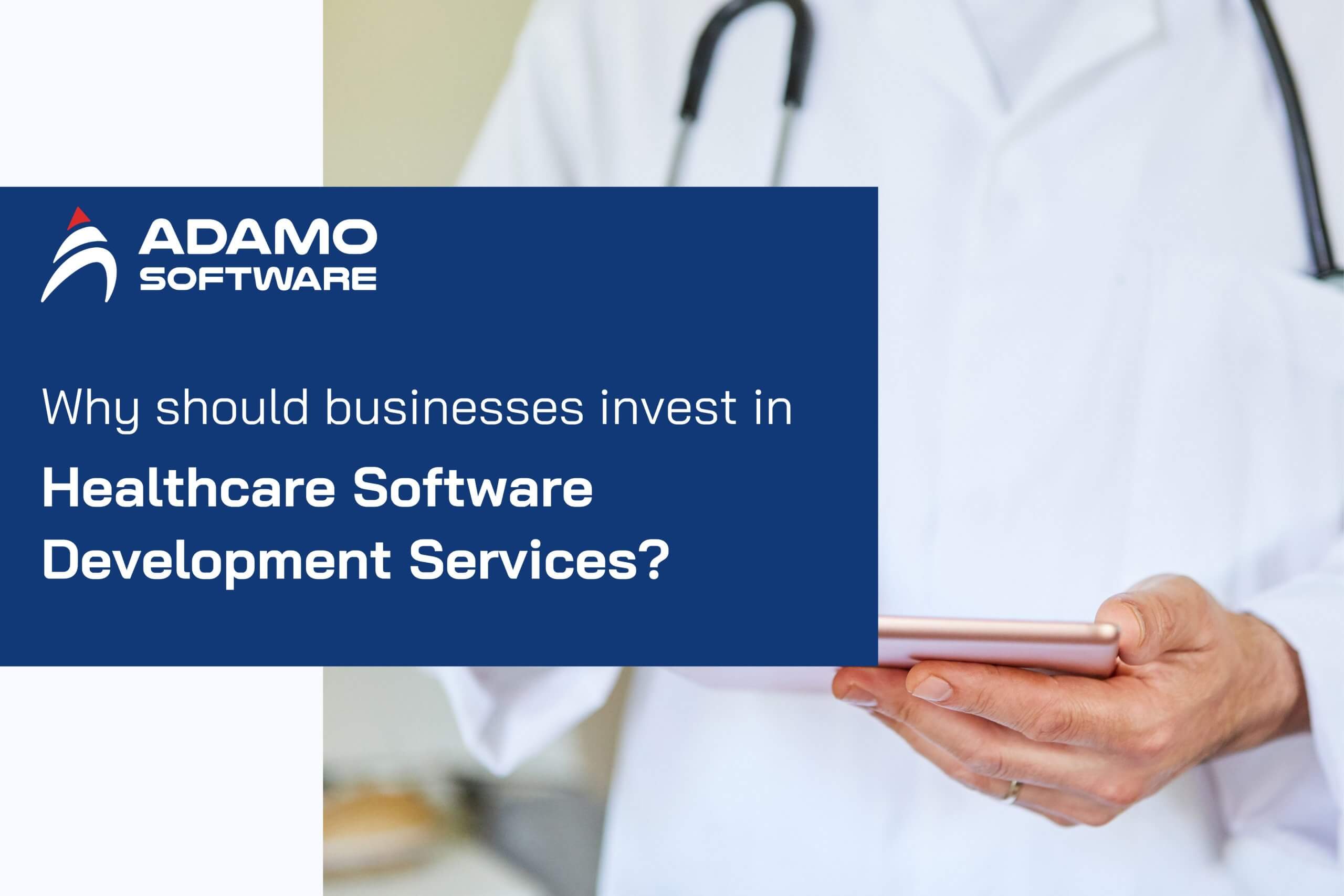
Boost patient care and efficiency with expert healthcare software development services. Learn how to build secure, scalable, and compliant digital solutions.
The healthcare industry is a fast-growing and large industry in the world. Statista values the global healthcare market at 7.975 trillion in 2022 and has a forecast of increasing it to 9.816 trillion by 2027. The demand for higher-quality patient care, quicker services, and efficient performance has increased the necessity of digital transformation. And healthcare software development services enter play. The services presented to hospitals, clinics, and startups offer them the capabilities to facilitate workflow processes, mitigate errors, and enhance patient experiences.
With electronic health records, telemedicine, and other artificial intelligence applications, such as diagnostics, healthcare professionals are making enormous investments in technology. The healthcare IT market in the global scenario is anticipated to increase by 2030 to more than $1.5 trillion, up from 663% in 2023 with a CAGR of 15.8% as per Precedence Research. And this sudden growth demonstrates the necessity of healthcare software development services which are not only needed to develop the app, but to renovate the whole healthcare system. These services assist in saving costs, addressing the shortage of staff, and increasing the number of patients.
There are, however, challenges associated with healthcare software. Good security, adherence to regulations, and integration with the current system are important. Thus, it is not a wonder that most healthcare institutions want to find professional partners that will assist them in creating stable and future-proof digital tools. When developing an app to remotely monitor the health of people or any system to manage a hospital, the collaboration of your team with somebody knowledgeable about healthcare software development services is an essential factor for success.
I. An overview of Healthcare Software Development Services
The medical sector is one of the biggest and most important in the world. Data on the global healthcare market from Statista shows that in 2022, the industry’s value was $7.975 trillion, which will grow to $9.816 trillion in 2027. This industry includes hospitals, personal practices, pharmaceutical companies, medical equipment suppliers, healthcare assistance, and technology providers.
Health care is a booming industry, and healthcare software development services will become necessary. Regardless of whether it is essential to streamline internal processes at a hospital, or a health-tech startup is planning to introduce a high-tech wearable medical device, modern solutions are based on software. The global healthcare IT market was estimated to be valued at 663.00 billion in 2023 and is projected to grow at the compound annual growth rate (CAGR) of 15.8%, resulting in its expected multi-billion-level growth to 1.8 trillion by 2030 [Fortune Business Insights].
The effect of the following industry concerns is forcing this phenomenal growth:
- Increasing cost of healthcare care
- Lack of health practitioners
- Poor, outdated clinical processes
- Rising bureaucracy and records
Young people, professionals, and entrepreneurs are being crushed by red tape and paper chase, which has become a feature of post-communist Gorbachev societies. The development of healthcare software is exposing ways to overcome these problems. Complex technologies such as Artificial Intelligence (AI), Machine Learning (ML), and Deep Learning are currently popular to maximize the accuracy of diagnostic results, personalize medical treatment plans, limit the rate of manual errors, and perform routine tasks automatically. According to a report by McKinsey & Company, AI and automation in healthcare have the potential to save the U.S. healthcare system up to 360 billion a year by creating more efficiencies and minimizing wastage.
Nevertheless, the creation of medical software is not all about coding. It must have great industry expertise, user experience, powerful security protocols, and stringent adherence to industry norms such as the HIPAA (in the U.S.) or the GDPR (in the EU). The lapse in these requirements may result in legal liability, data security, and ineffective product launch.
And that is why the launch of a healthcare project may be overwhelming. Most organizations are uncertain as to how to incorporate innovation and compliance, or how to come up with systems that are friendly and technically substantial. That is where software custom development work in healthcare comes in as a very important factor since it provides not only the talent to implement but also a complete needs met service from strategy to implementation and maintenance.
This guide will assist you in mastering the main principles of healthcare software development services: how you plan your project, select the most appropriate partner, make fewer mistakes, and create an overall product that will be safe, efficient, and ready to meet the future.
Explore Our Tailor-made Software Development Solutions
We are confident in providing end-to-end software development services from fully-functioned prototype to design, MVP development and deployment.
II. Pros and Cons of Custom Healthcare Software
Healthcare organizations are expanding and developing, and most are turning to custom-made solutions instead of off-the-shelf programs. The healthcare software development services are specific to a particular need, workflow, and regulatory requirements. They are associated with numerous benefits. However, they are also accompanied by challenges that businesses may want to take into account. The numbering of the major advantages and disadvantages is given below:
| Advantages | Disadvantages |
|
|
1. Pros of Custom Healthcare Software
Tailored to unique workflows
The solutions are designed with the specific needs of the organization in mind. Whether it is a hospital management solution or a particular diagnosis tool, companies can ensure that the software relates to the way their personnel use it.
Improved patient care
Medical professionals are also able to provide care to a greater degree and with a reduced number of errors when the software needed in the real world matches the requirements. As an illustration, a tailor-made EHR (Electronic Health Record) system will aid in eliminating unnecessary data entry and identifying essential information in seconds.
Stronger data security
The healthcare information is very confidential. Dedicated solutions may be developed with consistent advanced encryption, role-based access controls, and compliance regulations like the HIPAA, the GDPR, or the HL7. This cuts down the chances of data leaks and the legal situation. The IBM 2023 Cost of a Data Breach Report revealed that the average cost of a healthcare data breach was the highest in any industry, at 10.93 million dollars.
Scalability and flexibility
Your custom systems can expand together with the growth of your organization. Developers are allowed to include new functionality, better integrate with new devices, or scale to handle more users without having to redo everything.
Competitive advantage
Customized programs enable medical professionals to be creative and provide distinctive services. One example is that a start-up could create its own AI algorithm to assist with the early diagnosis of rare diseases where this is not commercially offered.
2. Cons of Custom Healthcare Software
High upfront costs
The cost of developing custom healthcare software is huge. It includes employee recruitment, the investigation of users, and the provision of extensive support. GoodFirms reckons the cost of developing a custom application to be between 40,000 and 120,000 dollars, depending on the complexity of the application.
Longer development time
Custom-made solutions are time-consuming as opposed to third-party tools. Pre-planning, development, testing, and compliance reviews can take a couple of months. There are frequent delays when the scope is imprecise, or it is necessary to alter the user.
Ongoing maintenance
The system must be updated, supported, and fixed in case of bugs after the launch. It requires long-term cooperation with the trustworthy service of healthcare software development.
Regulatory complexity
Nationally and internationally, custom software should be in line with regulations. Lack of such standards may lead to the denial of places in healthcare establishments or direct punishment.
Dependency on developers
Organizations can end up relying on the software company or the development team that constructed the same. This is the reason that one should prefer to select healthcare software development services that are transparent, well-documented, and that can work in the long run.
There is flexibility, control, and a greater correlation to clinical needs with a custom solution. The complexity, expense, and duration involved should be planned. Organizations should ponder whether they achieve more than what they lose by trade-offs- and enlist the help of an efficient and experienced healthcare software development services provider.
You can explore more about “Outsourcing Healthcare Software Development: When it works” here.
III. 5 reasons why businesses should outsource healthcare software development
Healthcare software development is among the software areas that organizations find strategic to outsource their services. Companies usually contract outside service providers who design, construct, and maintain their systems instead of establishing in-house teams. There are several advantages to this method, particularly in the dynamic and heavily regulated healthcare sector.
These are five good reasons why business outsourcing should be considered:
- Access to expertise – Access to highly skilled teams having experience in healthcare technology.
- Quicker deployment – No time lag with development environments ready.
- Lower Costs – Save money on overhead and manage project expenses.
- Focus on core- liberate your staff to deal with the care and strategy.
- Inherited compliance- Remain privacy and security ready and have legal preparedness.
1. Access to Specialized Talent
When accessing a pool of specialized talent, there is the issue of reservations. In light of this matter, the Supreme Court of India recently issued a directive that it was time to abolish the reservation system. The court stated that since India was waking up, it was time to get rid of the previous system used to make reservations. The field of healthcare technology is complicated. It needs developers familiar with clinical processes, privacy regulations, and medical data schemas such as HL7 or FHIR. Outsourcing will open companies to the vast resources of international experience in building medical apps, AI-based diagnostic tools, and secure medical platforms. The world is experiencing shortages of skilled medical staff including health IT experts as per the World Health Organization [WHO]. Outsourcing accelerates this process of filling the talent gap effectively.
2. Faster Time to Market
It is possible to take months in the process of forming a team. The outsourced healthcare software development services can most likely provide teams that are ready to work and with well-developed workflows. The reason is that it enables the companies to have a faster speed in releasing new products, unveiling product features, and addressing user suggestions. This is particularly relevant in the field of healthcare where innovation may have a direct impact on life.
3. Cost Efficiency
It is costly to hire and train one and keep an in-house development team. As per a study conducted by Deloitte, it was discovered that 59% of businesses prefer to outsource as their main aim is to cut down on costs. The health care software outsourcing development and services help the business to contain their budget a lot more since they always only pay for the experience and time required, but not the overhead which takes a long time.
4. Focus on Core Business
Outsourcing development enables healthcare systems and startups to do what they have managed to excel at doing – providing care or further developing innovations in medicine. This minimizes distractions and frees internal resources. Whilst the external group can focus on technology and compliance, the internal group can concentrate on patient experience, clinical excellence, or product vision.
5. Built-in Compliance and Security Expertise
Depending on the region, healthcare software is expected to comply with the most stringent legal regulations like HIPAA or GDPR, or PIPEDA. Errors can create or cause lawsuits, information breaches, or license revocation. Teams of outsourced specialists in providing services in the sphere of healthcare software development are likely to ensure compliance officers and legal consultants, whose task is to guarantee each product is secure and compliant right at its foundation. A report by the Ponemon Institute (2023) indicates that the costs of non-compliance are $14.82 million per organization, which significantly exceeds the organizational cost of compliance.
Outsourcing gives you more than a workforce; it gives you experience, speed, and a feeling of calm. Are you a hospital upgrading your system, a flying-high startup with the next health application, or an individual developer with a great idea? If so, expert services in healthcare software development outsourcing can greatly mitigate risk and maximize success. Nevertheless, one should select the appropriate partner – one who is aware of technology and healthcare.
IV. Checklists for choosing an ideal Healthcare Software Solutions provider
Along with choosing an effective marketing strategy, the choice of a partner in healthcare software development services is one of the crucial steps in the process of making medical software. An efficient provider is not only one who codes, but also makes it compliant, safe, usable, and succeeds longer. As demand increases and the number of risks in digital healthcare grows, the process of selection must be thoroughly conducted. The following is a convenient checklist, that can assist you in selecting a trustworthy partner in terms of healthcare software development services:
- Experience in healthcare – Search for a positive track record of medical initiatives.
- Regulation knowledge – Should be familiar with HIPAA, HL7, GDPR, and so on.
- Security concern – Secure coding and data security is the priority.
- Effective communication should be communicated regularly and openly.
- Scalable and agile – Able to grow and update flexibly.
- Post-launch support- It must consist of long-term maintenance.
- Cultural match-making – Be with someone who believes in what you believe in.
1. Deep Experience in the Healthcare Sector
Select a provider that has demonstrated the ability to provide services in healthcare software development. Request case studies or examples of already implemented healthcare projects. Enquire whether they have collaborated with hospitals, health clinics, health insurance platforms, or health technological startups. HealthIT.gov observes that most Euro-American systems created with no input from professionals fail to perform well in real-life scenarios therefore, experience in the industry is crucial.
2. Strong Knowledge of Regulations and Compliance
The healthcare industry is among the most regulated ones. Your provider should understand how to create software meeting such standards as HIPAA, GDPR, HL7, FHIR, and ISO 13485. Questions to ask would include how they would ensure compliance at every stage of the development. PwC said that healthcare may lead to high and reputational costs for the brand.
3. Security-First Development Approach
Security is not a choice. To be a qualified provider of healthcare software development services, a provider must adhere to secure coding standards, undertake frequent penetration tests, and enhance powerful data protection strategies like encryption and multi-factor authentication. Data breached health records According to the U.S. Department of Health and Human Services (HHS), this year alone (2023), more than 133 million health records were breached in data breaches.
4. Clear Communication and Transparency
Look for a team that communicates, listens carefully, and provides regular progress updates. Transparency in budgeting, timelines, and deliverables builds trust. A good partner will involve you throughout the project and explain both risks and solutions in plain terms — especially important when developing complex healthcare software development services.
5. Agile Development and Scalability
Users can give feedback, or regulations can change your project. Continuous improvement is enabled in a free and independent way. Inquire about whether the team adheres to Agile or Scrum solutions. In addition, ensure that their healthcare software development services are scalable: the number of users, integration, and even the possibility of using new technologies in the future, such as AI or IoT.
6. Post-Launch Support and Maintenance
Technical support is required after the implementation of software which requires monitoring, updates, and even eventual bug fixing. Ensures that the provider provides packages that are solid in terms of support. Healthcare software development services require long-term cooperation since compliance updates and technological upgrades are constant.
7. Cultural Fit and Ethical Standards
Select a group of people in the organization with whom you share values, work culture, and the mission of the organization. Healthcare is a delicate sector thus integrity, empathy, and an ethical decision-making process are important. Apart from ensuring that the business thrives, a partner providing healthcare software development services must incorporate the aspect of benefiting the patients and the professionals.
A qualified healthcare software developer will behave as a long-term partner rather than a vendor. They will fuse technical expertise with healthcare knowledge, and make safety, compliance, and performance a priority. Next, fill out this checklist to make your decision in a less risky way before your project starts. At Adamo Software, we know that providing quality healthcare software development services means we cannot just write great code. It needs profound expertise in the healthcare sector, a tight focus on secure solutions and compliance, and a capability to develop software that will enhance the manner people will be treated. You may want to introduce a patient portal, an EHR solution, or a remote monitoring app: our specialists are ready to make every step of the process clear and definitive.
V. Final thoughts
At Adamo Software, we understand that delivering high-quality healthcare software development services goes beyond writing good code. It requires deep knowledge of the healthcare industry, strict attention to security and compliance, and the ability to build software that truly improves the way people receive care. Whether you’re launching a patient portal, an EHR system, or a remote monitoring app, our team is here to guide you through each step with clarity and commitment. Seek out a team that is communicative, keen ears, and capable of reporting progress. Trust is established through transparency in the budget, schedules, and deliverables. When creating sophisticated healthcare software development services, a great partner will keep you involved in the project and discuss risks and possible solutions.

We have collaborated with hospitals, health startups, and insurance providers and helped them develop their custom solutions. We have an efficient strategy: by integrating knowledge about the specific industry with the latest technologies, such as AI, cloud computing, and IoT. This enables us to create member-friendly, scalable, and secure platforms. What is more important, we never skip compliance standards on the global level like HIPAA, HL7, or GDPR that cannot be omitted as an important part of reliable healthcare software development services.
Taking a step forward, digital healthcare transformation is an inevitability that continues to speed up. In our opinion, the role of software in addressing significant problems in the industry will unquestionably long term – treating shortages of doctors to the soaring costs of treatment. At Adamo, we take pride in the provision of services such as developing healthcare software that aids in innovation, safeguards patient information, and makes lives better. When you realize your healthcare solution, we are ready to assist you.






